
Carson Bigbee: The Pirate of America's Pastime(2023)
In the whirlwind of early 20th Century America, Carson Bigbee's rise from rural Oregon to World Series hero with the Pittsburgh Pirates embodies the ambition, resilience, and transformation of a nation on the brink of modernity.
In a time when America was on the brink of modernization, Carson "Skeeter" Bigbee emerged from rural Oregon to become an embodiment of national transformation. Born to working parents in 1895, Bigbee’s life as a multi-sport athlete, a baseball star with the Pittsburgh Pirates, a World War I enlistee, and a World Series hero, intersected with America's Progressive Era, the electrification of society, the First World War, and the onset of the Great Depression. His story, from hitting the decisive run in the 1925 World Series to managing in the American Girls Professional Baseball League, is a poignant reflection of ambition, patriotism, and the resilient spirit of an ever-changing nation in the early 20th Century.
Movie: Carson Bigbee: The Pirate of America's Pastime
Top 2 Billed Cast
Rachel Elevenlabs
Charles Postel
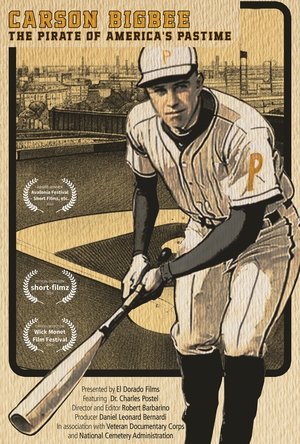
Carson Bigbee: The Pirate of America's Pastime
HomePage
Overview
In a time when America was on the brink of modernization, Carson "Skeeter" Bigbee emerged from rural Oregon to become an embodiment of national transformation. Born to working parents in 1895, Bigbee’s life as a multi-sport athlete, a baseball star with the Pittsburgh Pirates, a World War I enlistee, and a World Series hero, intersected with America's Progressive Era, the electrification of society, the First World War, and the onset of the Great Depression. His story, from hitting the decisive run in the 1925 World Series to managing in the American Girls Professional Baseball League, is a poignant reflection of ambition, patriotism, and the resilient spirit of an ever-changing nation in the early 20th Century.
Release Date
2023-10-01
Average
0
Rating:
0.0 startsTagline
In the whirlwind of early 20th Century America, Carson Bigbee's rise from rural Oregon to World Series hero with the Pittsburgh Pirates embodies the ambition, resilience, and transformation of a nation on the brink of modernity.
Genres
Languages:
EnglishKeywords
Similar Movies
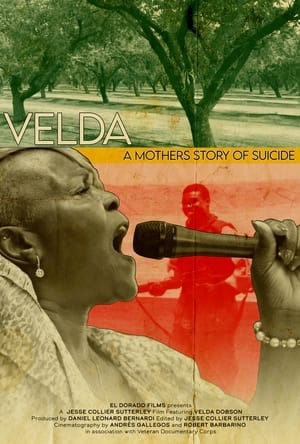 0.0
0.0Velda: A Mom's Story of Suicide(en)
In the poignant and thought-provoking short film, a distressed mother, Velda, takes center stage as she recounts the tragic tale of her son, Michael, who battles inner demons after being sent to war. As she navigates through the gut-wrenching chronology of his enlistment on the eve of 9/11, his traumatizing experiences in combat, and his futile attempts at readjustment after returning home, the narrative unravels to reveal the silent and insidious toll of war on the mental health of soldiers. Compelled by her son's devastating suicide, Velda transforms her grief into a call for action, articulating her concerns about the military's approach to mental health issues in a letter to the president. This heart-rending short film underscores the often overlooked consequences of war, giving voice to those left in its devastating wake.
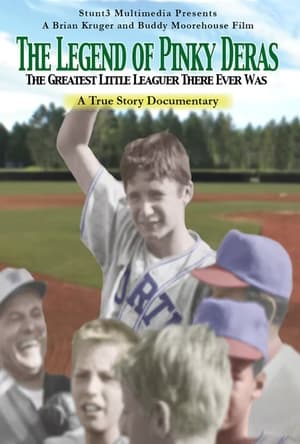 0.0
0.0The Legend of Pinky Deras: The Greatest Little-Leaguer There Ever Was(en)
Since Little League Baseball was founded in 1939, about 40 million kids have played the sport. The list includes future Hall of Famers like Carl Yastrzemski, Tom Seaver and Nolan Ryan, and hundreds of other future Major Leaguers. But of all the kids who ever played Little League, the best of the best was a boy you’ve probably never heard of: Art “Pinky” Deras. In the summer of 1959, he led the team from Hamtramck, Mich., to the Little League World Series title, and in the process, he put together a Little League season the likes of which we might never see again. His amazing story comes to life in “The Legend of Pinky Deras: The Greatest Little-Leaguer There Ever Was,” a new film from Blue Hammer Films. Pinky received a ton of national publicity back in 1959, but then he fell off the map. In the half-century since he lit the Little League world on fire, there have been no films about him, no magazine stories, not even a single newspaper article.
Untitled Barry Bonds Documentary(en)
Narrates the life story of Barry Bonds, the single-season home run king, from his early days as the son of All-Star Bobby Bonds and godson of the iconic Willie Mays to his explosive rise in the 1990s and 2000s.
 0.0
0.0The Pine Tar Incident: Making of Tar Wars(en)
An examination of the story of the infamous 1983 George Brett pine tar incident. This documentary is a behind the scenes making of a fictional film, "Tar Wars," the little known tale of the aftermath of George Brett's unforgettable blow-up.
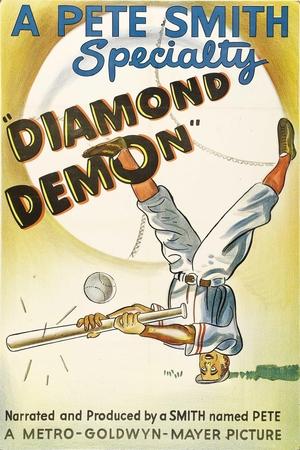 8.0
8.0Diamond Demon(en)
The unusual talents of Johnny Price, a minor league baseball pitcher and trick artist, are showcased in this Pete Smith Specialty. Among other talents, Mr. Price can throw two (and, in certain situations three) baseballs simultaneously to different people. The catchers can be side by side, with one high and one low, or standing on the pitcher's mound and second base while Price throws the ball from the catcher's position. He can even perform these feats while suspended upside-down.
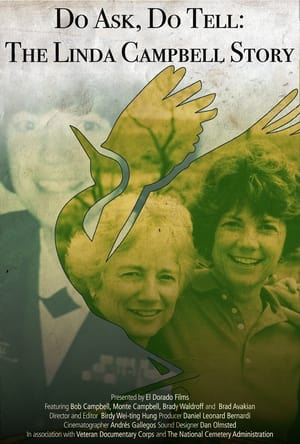 0.0
0.0Do Ask, Do Tell: The Linda Campbell Story(en)
Set against the backdrop of the repeal of the "Don't Ask, Don't Tell" policy, the film chronicles the journey of Lt. Col. Linda Campbell, an Air Force veteran who grappled with hiding her true self during her service tenure. While the national policy shift towards LGBTQ+ rights marks a progressive era, Linda's personal story serves as a powerful testament to the individual battles fought in the shadows of such policies. Subjected to suspicion, prejudice, and threats from her comrades due to her perceived homosexuality, Linda's resilience remain undeterred. Her unwavering love and commitment to her partner, Nancy Lynchild, culminate in a poignant milestone: their eternal rest together in Willamette National Cemetery. Intertwined with this narrative is the account of Linda's brother, Bob Campbell, who delves into their family's conservative roots, Linda's tumultuous coming out, and the eventual familial reconciliation that showcases the transformative power of love and understanding.
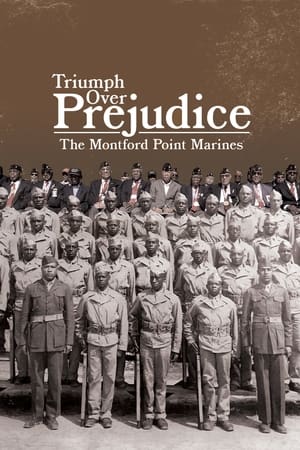 0.0
0.0Triumph Over Prejudice: The Montford Point Marines(en)
Against the backdrop of a world on the brink, the Montford Point Marines transcended enemy lines and formidable barriers of racial segregation. Beginning in rural Virginia, their journey to the front lines of World War II, the Korean War, and the Vietnam War is more than a testament to their bravery - it's a reflection of their indomitable spirit and unyielding resolve. Confronting racial prejudices, the heartbreaks of war, and the turbulent transition to civilian life, these men never wavered in their commitment. "Triumph Over Prejudice" dives deep into the uncharted terrains of the Black experience in the early 20th century Marine Corps, illuminating stories often shadowed in history's corners. With cinematic finesse fit for a global streaming audience, the film weaves personal narratives into a rich tapestry, culminating in an epic saga of heroism, perseverance, and the enduring legacy of the American veteran.
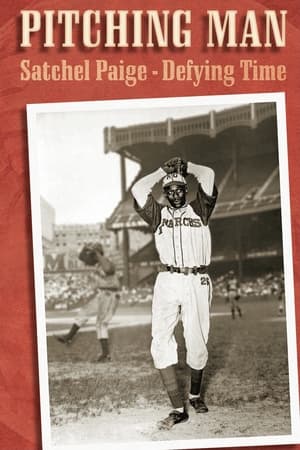 0.0
0.0Pitching Man: Satchel Paige Defying Time(en)
Celebrate the life of baseball’s most enduring legend; Satchel Paige was the single most important player in the old Negro Baseball Leagues
 5.8
5.8The Last Season(en)
In search of the lucrative matsutake mushroom, two former soldiers discover the means to gradually heal their wounds of war. Roger, a self-described 'fall-down drunk' and sniper in Vietnam, and Kouy, a Cambodian refugee who fought the Khmer Rouge, bonded in the bustling tent-city known as Mushroom Camp, which pops up each autumn in the Oregon woods. Their friendship became an adoptive family; according to a Cambodian custom, if you lose your family like Kouy, you must rebuilt it anew. Now, however, this new family could be lost. Roger's health is declining and trauma flashbacks rack his mind; Kouy gently aids his family before the snow falls and the hunting season ends, signaling his time to leave.
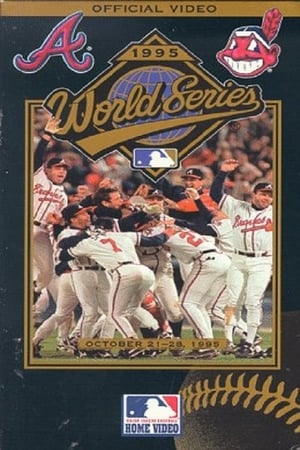 0.0
0.01995 Atlanta Braves: The Official World Series Film(en)
The 1995 World Series featured the two best teams in baseball. The Cleveland Indians won 100 games in a shortened season, and they made it to the World Series for the first time in 41 years. The Atlanta Braves had been here before, twice in the previous four years. With the best pitching staff in baseball, they were called the team of the '90's. Still they needed a World Series Title to claim that crown. This official documentary of the 1995 World Series includes all the dramatic moments of the six-game battle between the Indians and the Braves including: Eddie Murray's game-winning single at frenzied Jacobs Field. Orel Hershiser's gutsy performances against the incredible Greg Maddux. Dave Justice talking the talk...and then walking the walk. Tom Glavine, the series MVP, pitching one-hit baseball under phenomenal pressure.
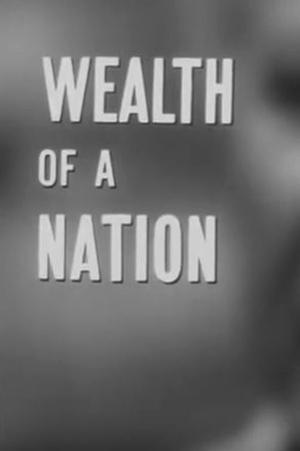 0.0
0.0Wealth of a Nation(en)
This film explores freedom of speech in the United States of America
 0.0
0.0Decoding Jean: Secrets of WWII(en)
In the midst of World War II's turmoil, the quaint British town of Bury St. Edmonds becomes a focal point where lives intersect and secrets unravel. An 18-year-old woman finds herself caught in the throes of a great wartime secret – the breaking of the German Enigma code. Her recruitment into the "Ultra" program brings her to the heart of Bletchley Park's most clandestine operations, where Alan Turing and his team forge the world's first computer in a bid to crack the ever-changing German codes. Every day, she grapples with the weight of the secret, so profound that even her family is oblivious to her covert role. Meanwhile, she captures the heart of an assertive American soldier and their whirlwind wartime romance culminates in a heartwarming union, facing the challenges of the Official Secrets Act. The soldier, persistent and deeply in love, goes to great lengths, in order to secure her release from the program and to solidify their commitment to one another.
Baseball, Dennis & The French(en)
Baseball, Dennis & the French tells the true story of Paul Croshaw, longtime liberal activist and connoisseur of French films, who amazed his family, friends and himself by becoming a churchgoing, conservative Christian after years of listening to nationally syndicated radio host Dennis Prager.
When Colorado Went Major League(en)
A baseball loving community unites to make its MLB dream come true and hits a home run with the 1993 arrival of Colorado Rockies.
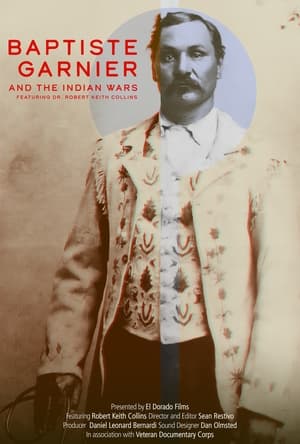 0.0
0.0Baptiste Garnier and the Indian Wars(en)
In 1866, as the U.S. modernized its military, the Army Reorganization Act allowed Native Americans to enlist as scouts, heralding a profound era of change. Amidst this backdrop, the film unfolds the story of Baptiste Garnier, a half Oglala Sioux, half French-Canadian scout known as "Little Bat." Torn between his Sioux roots and his U.S. allegiances, he navigated the brutal Indian wars and was at the heart of pivotal battles, including the tragic Wounded Knee massacre. Although perceived as a bridge between two worlds, Baptiste's duality often led him to make heartbreaking decisions. By the time of his untimely death in 1900, shot by a white bartender over a bar tab dispute, he epitomized the complex weave of identity and legacy, raising questions about the cost of serving two peoples in a divided America.
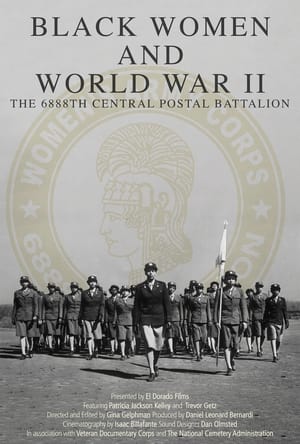 0.0
0.0Black Women and World War II: The 6888th Central Postal Directory Battalion(en)
In the midst of World War II, the 6888th Central Postal Directory Battalion, an all-female African-American unit, undertook the monumental task of sorting and delivering a massive backlog of mail for the U.S. military. Despite facing deplorable working conditions and the pervasive dual discrimination of race and gender, these women served their country with unbreakable determination and pride. Led by the formidable Major Charity Adams, they not only achieved their mission in half the expected time but also broke barriers, standing firm against inequality and inspiring future generations. Tragically overlooked for years, the story of the 6888th sheds light on a remarkable, untold chapter of American history, reflecting both the triumphs and injustices that shaped the nation's path towards civil rights. Their courage and resilience continue to resonate, a poignant reminder of the societal strides still needed to fully recognize and honor their invaluable contribution.
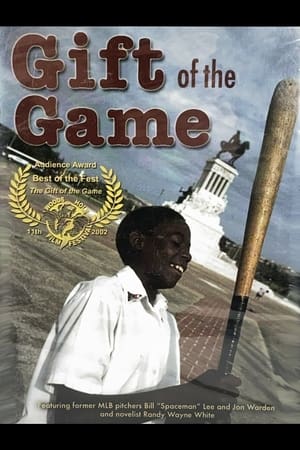 0.0
0.0Gift of the Game(en)
Acclaimed Florida novelist Randy Wayne White travels to Cuba with former pitchers Bill "Spaceman" Lee (Boston Red Sox) and Jon Warden (Detroit Tigers), and a band of baseball enthusiasts to find and revive the children's baseball league founded by American writer Ernest Hemingway in the days before Fidel Castro came to power.
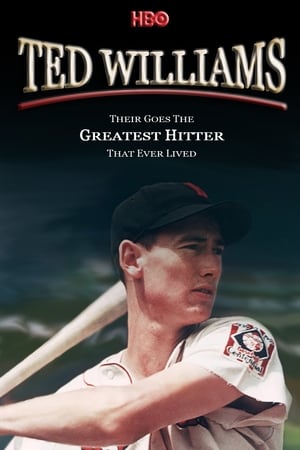 0.0
0.0Ted Williams(en)
Born in 1918 in San Diego, Williams was a latchkey child from a broken home, raised by a mother more dedicated to the Salvation Army than to her two sons, and by a father who spent more time away from home than in it. Williams found salvation by doing the one thing he loved most: hitting baseballs. In his rookie season with the Red Sox, where he would spend his entire career as a player, Williams batted .327, socked 31 homers and led the league with 145 RBI. Over the next 21 years, despite losing five seasons of his prime to active service as a U.S. Marine Corps pilot, Williams hit 521 home runs, twice captured the Triple Crown, and became the oldest man ever to win a batting title. He finished his career with a .344 lifetime batting average, was the last man to hit over .400 in a full season, batting .406 in 1941, and was a first-ballot inductee into the Baseball Hall of Fame.
 7.4
7.4The Day The Series Stopped(en)
On Oct. 17, 1989, at 5:04 p.m. PT, soon after Al Michaels and Tim McCarver started the ABC telecast for Game 3 of the World Series between the San Francisco Giants and the Oakland Athletics, the ground began to shake beneath Candlestick Park. Even before that moment, this had promised to be a memorable matchup: the first in 33 years between teams from the same metropolitan area, a battle featuring larger-than-life characters and equally colorful fan bases. But after the 6.9 Loma Prieta earthquake rolled through, bringing death and destruction, the Bay Area pulled together, and baseball took a backseat.
 6.0
6.02005 Houston Astros: The Championship Season(en)
The Houston Astros overcame the worst start in franchise history to win the National League.